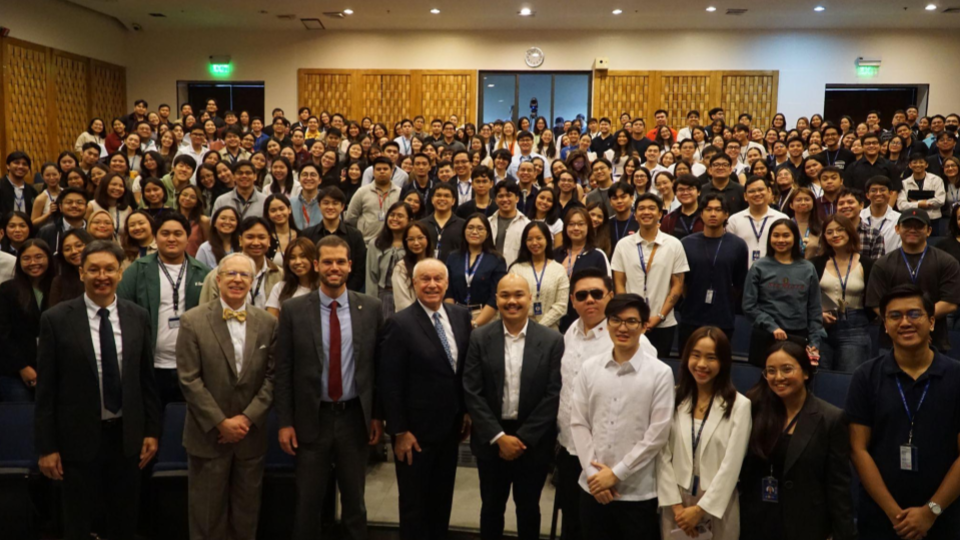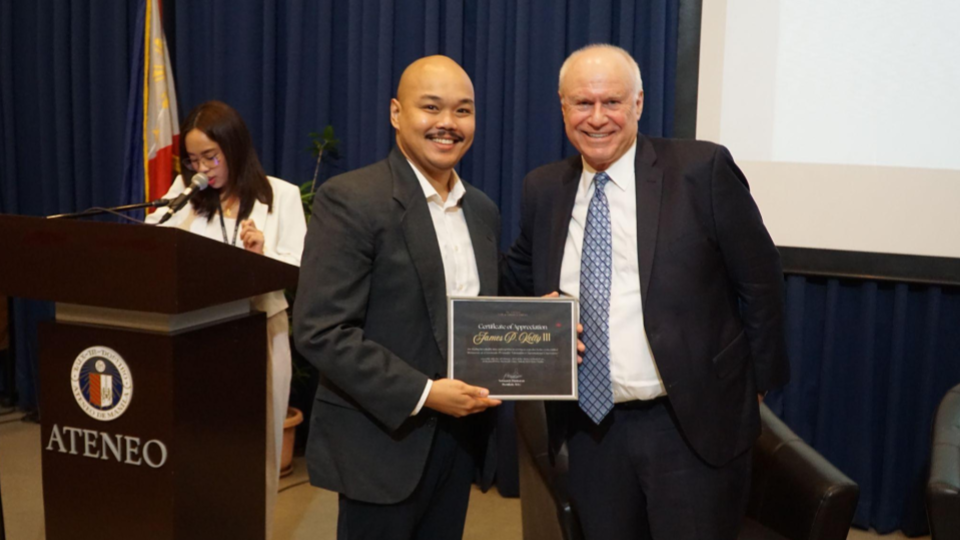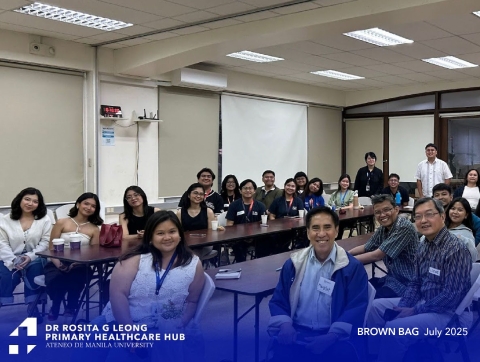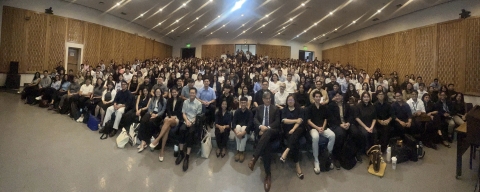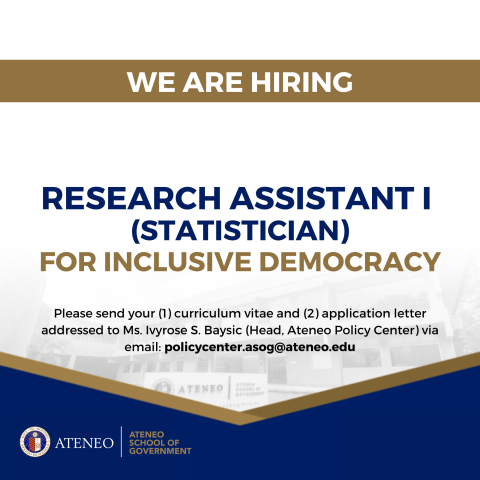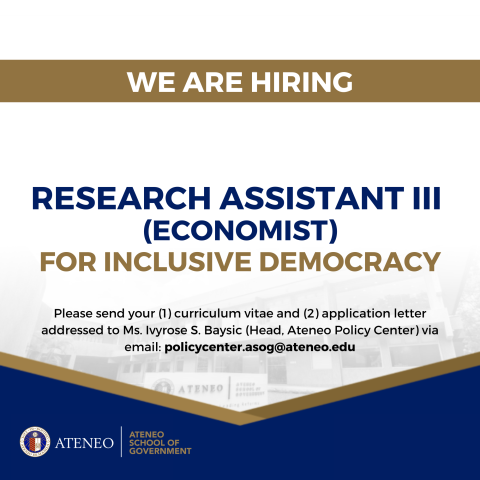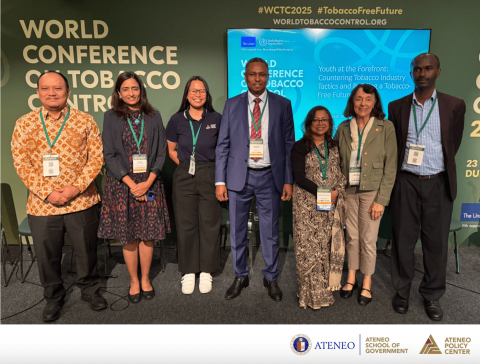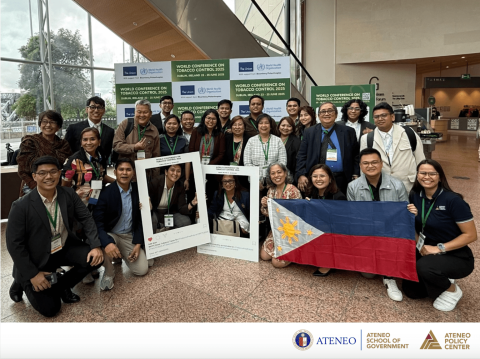Ateneo Law and Liberty Circle hosts talk on "Democracy at a Crossroads" with James P Kelly III
06 Mar 2025
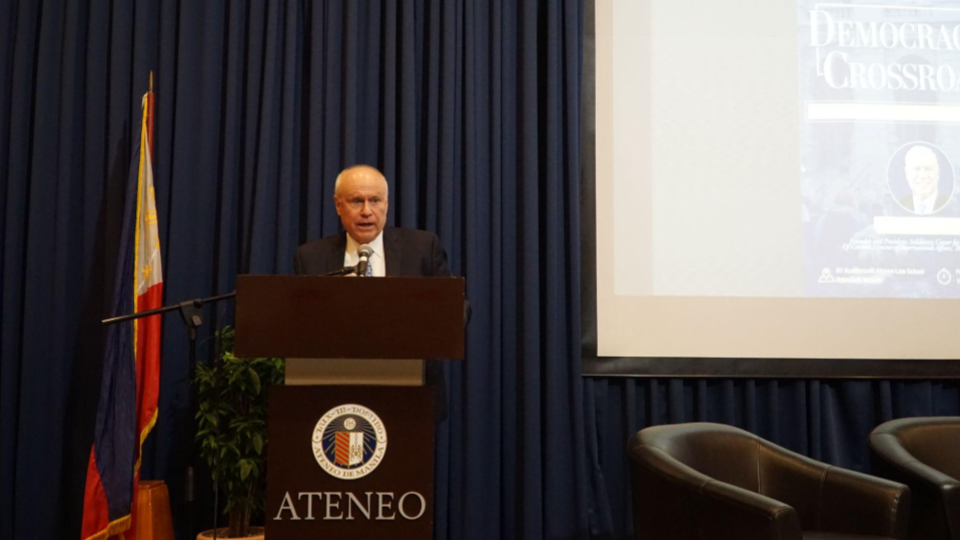
On 28 February 2025, the Ateneo Law and Liberty Circle hosted a lecture titled "Democracy at a Crossroads: Personalist Nationalism or Supranational Corporatism?" by James P "Jim" Kelly III.
Jim Kelly is the Founder and President of Solidarity Center for Law and Justice, PC, an Atlanta, GA-based public interest human rights law firm that promotes the right to education and freedom of religion and expression. Since 2005, he has also served on an of counsel basis as the Director of International Affairs for the 90,000 member Washington DC-based Federalist Society for Law and Public Policy Studies.
In his talk, Kelly explained how, in recent years, long-established political parties – and the special interest groups who support them – have labeled their opponents as “threats to democracy” and attempted to censor them. This is instead of seriously considering populist demands for greater transparency, accountability, competency, and fairness.
He discussed how progressive and conservative politicians in the West have offered what he calls “supranational corporatism” as their governance model. In this model, the State, international organizations, transnational businesses, and NGOs share power in pursuit of the "utopian" goal of human security for all.
Kelly, on the other hand, suggests “personalist nationalism” as an alternative governing model. Here, the State prioritizes the dignity of each person to pursue life, liberty, and happiness in freedom and in the context of the unique cultural, social, and historical conditions and experiences of their homeland.
As part of this, Kelly explained that human dignity and rights stem not from any governmental or State mandate, but rather from the Divine.
In addition, Kelly also drew on the words of former President of the United Nations General Assembly and Pope John Paul II, who, in various papers and speeches, have also affirmed the personal nature of human rights. Kelly even points out that Ambassador Romulo viewed the Universal Declaration of Human Rights as "an affirmation of the essential rights with which man has been endowed by his Creator.”
Kelly, however, noted that in the decades that followed, transnational progressives and even the United Nations have ignored these insights and have imposed a secular global human rights orthodoxy that minimizes the personal nature of human rights and the realization of those rights in each unique national context.
Kelly concludes that what is needed is a personalist "heroic" democracy that is rooted in Christian humanism.
"Christians must intervene in the destiny of the world," he states. "Winning—through science and through social and political action—a power over nature and history, while remaining a subordinate agent to divine Providence."
Doing so, according to Kelly is the only hope for going against this supranational corporatism that does not have the time or desire to consider and respect what it views as inefficient, transcendent, personal, and traditional natural rights.
Following the talk, Kelly and the other guests that had accompanied him — Jose Nunes, Tom Clark — engaged in a lively open forum with the School of Law students, faculty and administrators who had attended his talk.
